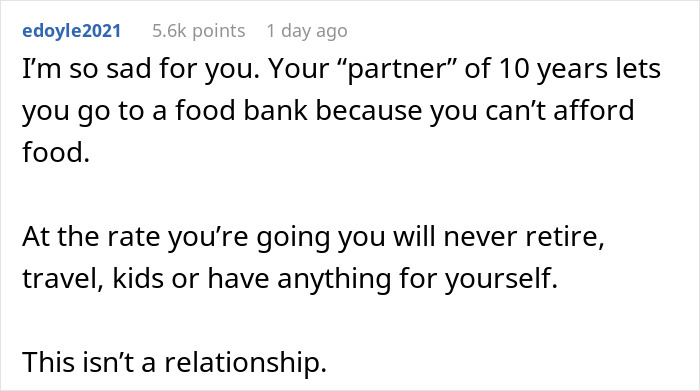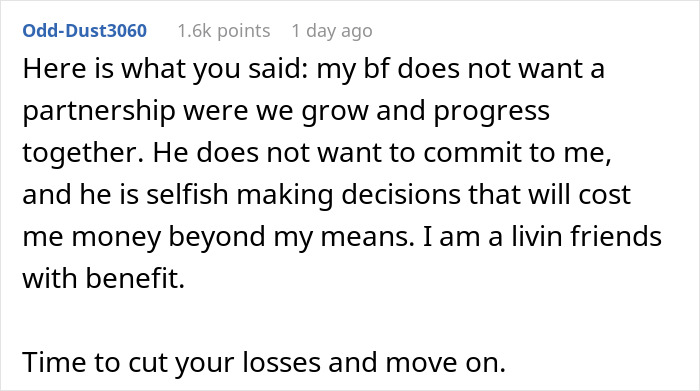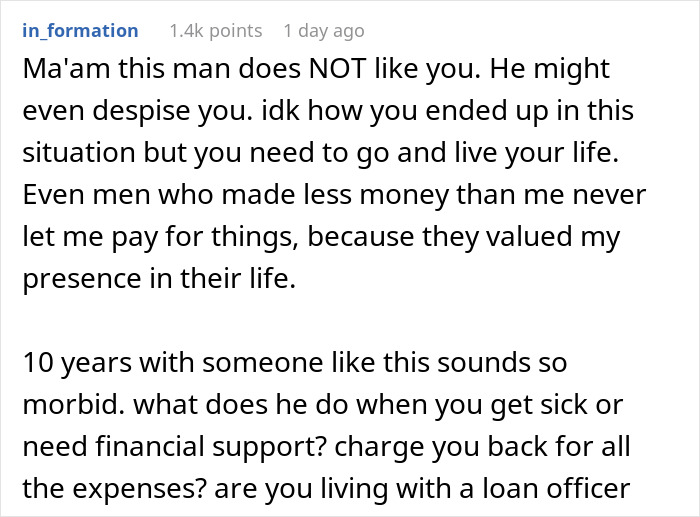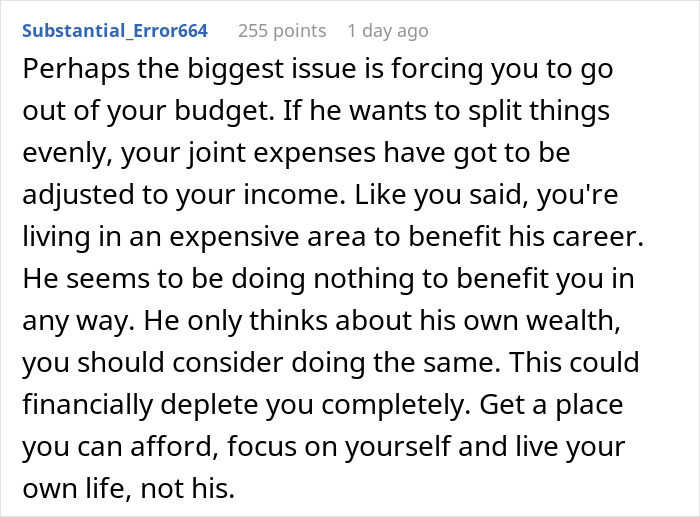When it comes to relationships, some couples swear by splitting everything 50/50, while others may choose to go by income proportions or even pooled resources.
But what happens when one partner feels financially crushed while the other seems to thrive? One Original Poster’s (OP) story has stirred the internet when her partner of 10 years declared that their expenses should be always split equally despite making twice as much as she does, and it might make you rethink what fairness really means in a relationship.
More info: Reddit
It’s super easy for lovebirds to swoon over cute gifts and candlelit dinners, but when money gets into the mix, things can get complicated

Image credits: senivpetro / Freepik (not the actual photo)
The author’s boyfriend earns a higher income and his insistence on splitting bills evenly leaves her financially strained and reliant on food banks



Image credits: chillerific

Image credits: freepik / Freepik (not the actual photo)
Her boyfriend’s higher spending habits and refusal to adjust the bills based on income differences stem from his belief that he works harder
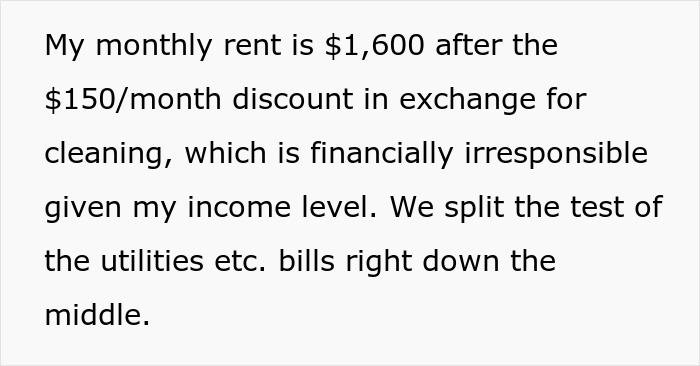
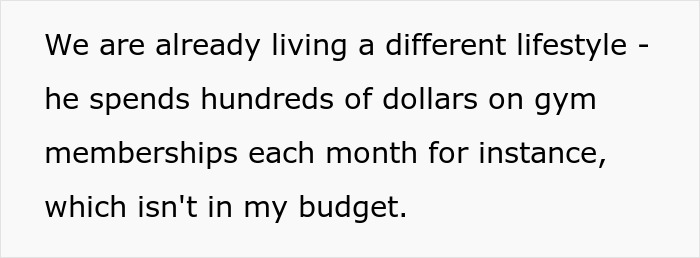
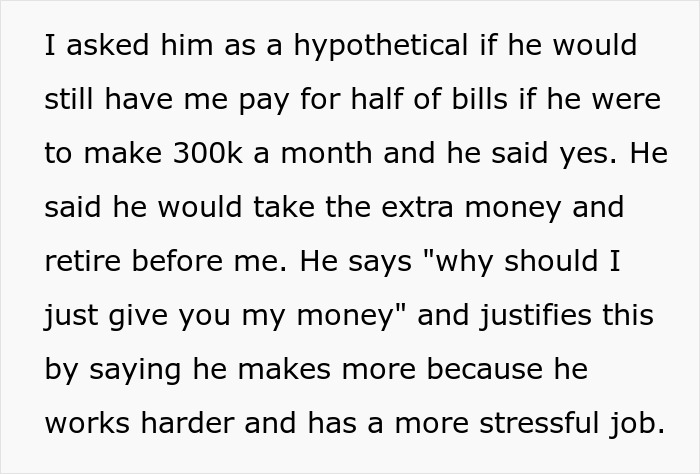
Image credits: chillerific

Image credits: Mikhail Nilov / Pexels (not the actual photo)
Despite a decade together, his resistance to marriage amid her financial stress makes her feel inadequate in the relationship
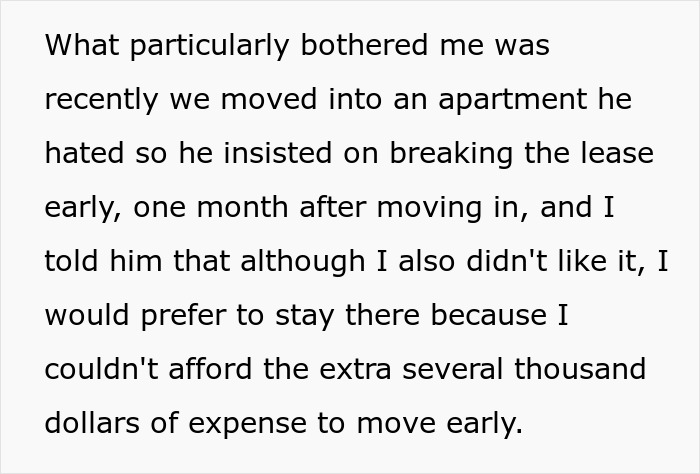

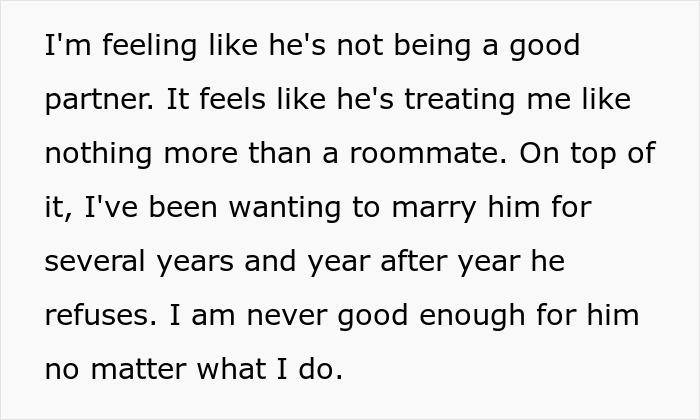
Image credits: chillerific

Image credits: freepik / Freepik (not the actual photo)
The author states that the situation has nothing to do with feminism, but rather that pooling resources would better reflect a loving relationship
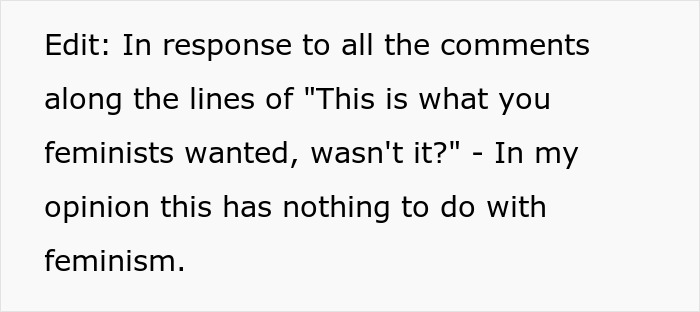
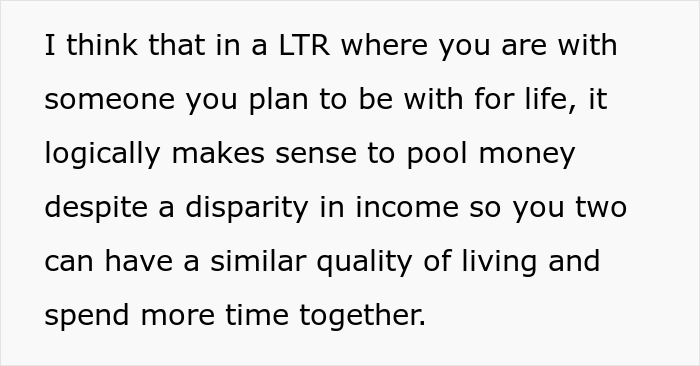
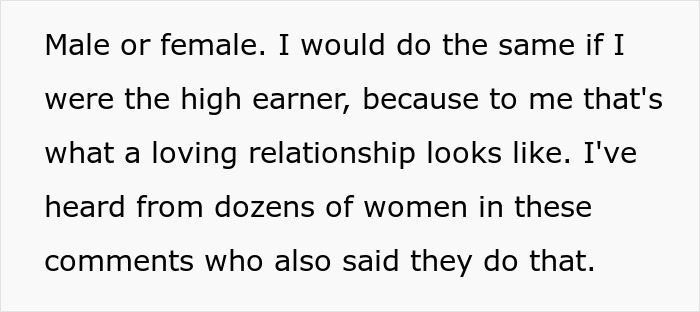
Image credits: chillerific
Despite their love story spanning over a decade, her boyfriend’s unwillingness to compromise financially has left her feeling like a roommate rather than a partner
In a candid account, the OP shared how financial disparity and differing lifestyle priorities have put a strain on her 10-year relationship. She earns $47,000 a year, while her boyfriend rakes in $115,000. But the bills? Those are split right down the middle—well, almost.
He gives her a $37 weekly discount in exchange for an extra hour of housecleaning on her part. Beyond that, she’s left struggling to make ends meet in a high-cost city like Seattle, where even basic survival is tough on her salary.
Her boyfriend insists on living in Seattle for its proximity to his well-paying tech job, family, and friends, while she has no local support system. To manage her $1,600 rent (after the small cleaning discount), she’s resorted to food banks to stay afloat.
In a hypothetical scenario where he made $300,000 a year, he said he’d still expect her to pay half. His justification? He claims his higher income is the result of harder work and more stress, and he’d rather retire early than help balance their shared costs.
Adding salt to the wound, he recently forced them to break a lease early on an apartment he disliked. She couldn’t afford the costs of moving, but he insisted—and expected her to pay an equal share of the hefty penalties.
This dynamic, coupled with her unfulfilled desire to get married, has left her questioning whether he values her as a partner or simply as someone to share living expenses with. However, beyond dollars and cents, the woman’s deeper frustration lies in how she’s being treated.

Image credits: Liza Summer / Pexels (not the actual photo)
According to Forbes, money is a common source of conflict in relationships, often eroding trust and intimacy. While couples may agree on fundamental values, financial disagreements can arise because people’s beliefs about money are deeply personal.
These beliefs are shaped by family, personal experiences, and societal influences. In the case of the OP, the differing financial views between her and her boyfriend could be contributing to the strain in their relationship, as their values around money clash.
However, Online Theories emphasizes the importance of fairness in relationships regardless of beliefs. They state that relationships thrive when there is a balance of give and take, and fairness is essential for long-term satisfaction.
Following the equity theory, they explain that when individuals perceive inequality in a relationship, it can lead to negative emotions like resentment or dissatisfaction.
The unequal distribution of financial responsibilities, despite the OP’s lower income, may impact her emotional well-being, especially since fairness in household chores, decision-making, and opportunities for personal growth also play a crucial role in maintaining relationship harmony.
Netizens were appalled by the boyfriend’s selfish behavior, highlighting how his financial control is causing significant strain on her.
Others urged the OP to reassess her relationship, suggesting that her boyfriend’s actions indicate a lack of respect and care for her. “This man does NOT like you,” one user bluntly pointed out, while another described the situation as “crimson red flags.”
The OP mentioned in an edit that if she were in his position, she would pool their money despite the income disparity because that’s what a loving relationship looks like. What do you think—should financial fairness be a priority in relationships? Please let us know your thoughts in the comments!
Netizens rallied around the author to express their concern, but they told her point-blank that leaving the relationship is the best next thing

